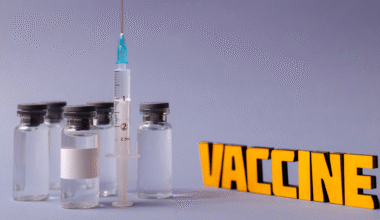‘What’s the average lifespan of a pitbull dog?’ is a question that doesn’t always have a simple answer. Sure, genetics and breed traits matter, but how much of it comes down to your care and their environment?
The truth is, while pitbulls are known for their strength and loyalty, their lifespan can vary widely depending on a few key factors. Stick around to the end, and we’ll break down not just the average years, but also how you can help your pitbull live a long, healthy life.
What’s the Average Lifespan of a Pitbull Dog

When discussing the average lifespan of a pitbull, it’s important to note that there are various types within the pitbull family, and their lifespans can differ slightly. Here’s a breakdown of the average lifespans for some common types:
1. American Pit Bull Terrier: Average lifespan 8 to 15 years.
2. American Staffordshire Terrier: Average Lifespan 10 to 15 years.
3. Staffordshire Bull Terrier: Average Lifespan 12 to 14 years.
4. American Bully: Average Lifespan 8 to 12 years
While the average lifespan of pitbulls typically ranges from 10 to 16 years, the specific type and individual health factors will ultimately determine how long your dog will be by your side.
Factors That Impact a Pitbull’s Lifespan
The lifespan of your pitbull isn’t set in stone; it’s influenced by several key factors. Understanding these can help you provide the best care for your furry friend and potentially extend their years. Here are the main factors that impact a pitbull’s lifespan:
1. Genetics and Breed Health: Pitbulls are generally robust, but like all breeds, they are prone to certain health issues. Common problems include hip dysplasia, which affects mobility, heart disease that can develop as they age, and skin allergies that often need management to keep them comfortable.
2. Diet and Exercise: Proper nutrition is essential for maintaining a healthy weight and overall health. Feed your pitbull a balanced diet with high-quality ingredients, and aim for at least 30 to 60 minutes of activity each day to keep them fit and reduce obesity-related health risks.
3. Environment and Living Conditions: Pitbulls thrive in loving homes with plenty of space to play. Living indoors and having regular interactions with family can reduce stress and anxiety, promoting a longer lifespan. Additionally, climate can affect their health, so ensure they are comfortable in extreme temperatures.
4. Veterinary Care: Regular check-ups and vaccinations are key to preventing illness. Staying on top of dental care is crucial since dental disease can lead to other health problems. Spaying or neutering your pitbull can also reduce the risk of certain health issues.
5. Spaying/Neutering: This procedure not only helps control the pet population but can also positively impact lifespan. Neutered males and spayed females often have lower risks of certain cancers and other health issues.
By focusing on these factors, you can help ensure that your pitbull lives a longer, healthier life. Taking proactive steps today can make a significant difference in their well-being for years to come.

Tips to Help Your Pitbull Live Longer
Ensuring your pitbull has a long and healthy life requires attention to several key areas. Here are some effective tips to help you keep your furry friend thriving:
Regular Exercise Routines
Daily exercise is crucial for your pitbull’s physical and mental health. Aim for at least 30 to 60 minutes of activity each day. This can include walks, runs, or play sessions in the yard. Regular exercise helps maintain a healthy weight, keeps their muscles strong, and can reduce behavioral issues stemming from boredom or excess energy.
Proper Nutrition
A balanced diet plays a significant role in your pitbull’s lifespan. Opt for high-quality dog food that lists meat as the first ingredient and is free from fillers. Portion sizes should be appropriate for their age, weight, and activity level; generally, a medium-sized pitbull needs about 2 to 3 cups of food per day, split into two meals.
Always consult your veterinarian for specific dietary recommendations tailored to your dog.
Mental Stimulation and Play
Mental exercise is just as important as physical activity. Engage your pitbull with puzzle toys, obedience training, and interactive games to keep their mind sharp. Regular playtime not only strengthens your bond but also helps prevent anxiety and destructive behaviors.
Preventative Health Care
Regular veterinary visits are vital for keeping your pitbull healthy. Schedule check-ups to monitor their overall health, keep vaccinations up to date, and discuss any concerns you may have. Don’t forget dental care; brushing your pitbull’s teeth regularly and providing dental chews can help prevent periodontal disease, which can lead to other health problems.
By incorporating these tips into your pitbull’s daily routine, you can significantly contribute to their longevity and quality of life. Taking these proactive steps now will pay off in the years to come, ensuring your loyal companion stays healthy and happy.

Conclusion
So, what’s the average lifespan of a pitbull dog? Generally, pit bulls live between 12 and 14 years, but this can vary based on factors like genetics, care, and environment. By understanding these influences and taking proactive steps, you can help your pitbull reach the upper end of that range and enjoy a healthy, fulfilling life.
Remember, your actions make a significant difference. Providing regular exercise, proper nutrition, mental stimulation, and preventative health care can all contribute to a longer lifespan for your furry friend.
If you have any questions or concerns about your pitbull’s health or well-being, feel free to share in the comments. Let’s keep the conversation going and support each other in caring for our beloved pit bulls!





17 comments
adzjha
I’m not that much of a online reader to be honest but your blogs really nice, keep it up! I’ll go ahead and bookmark your website to come back later. Cheers
I like your writing style genuinely loving this web site.
Very good https://is.gd/tpjNyL
Everything is very open and very clear explanation of issues. was truly information. Your website is very useful. Thanks for sharing.
8cutpn
wjxnhz
j4nsvy
nlzmyq
avsl44
psdsf5
c7266p
demais este conteúdo. Gostei muito. Aproveitem e vejam este conteúdo. informações, novidades e muito mais. Não deixem de acessar para se informar mais. Obrigado a todos e até mais. 🙂
Đến với trang hiếp dâm trẻ em, bạn không chỉ được xem full hd siêu mượt mà còn được xâm hại các bé cực vui.
Ma túy giao hàng nhanh
**mitolyn**
mitolyn is a carefully developed, plant-based formula created to help support metabolic efficiency and encourage healthy, lasting weight management.
**biodentex**
biodentex is an advanced oral wellness supplement made for anyone who wants firmer-feeling teeth, calmer gums, and naturally cleaner breath over timewithout relying solely on toothpaste, mouthwash, or strong chemical rinses.